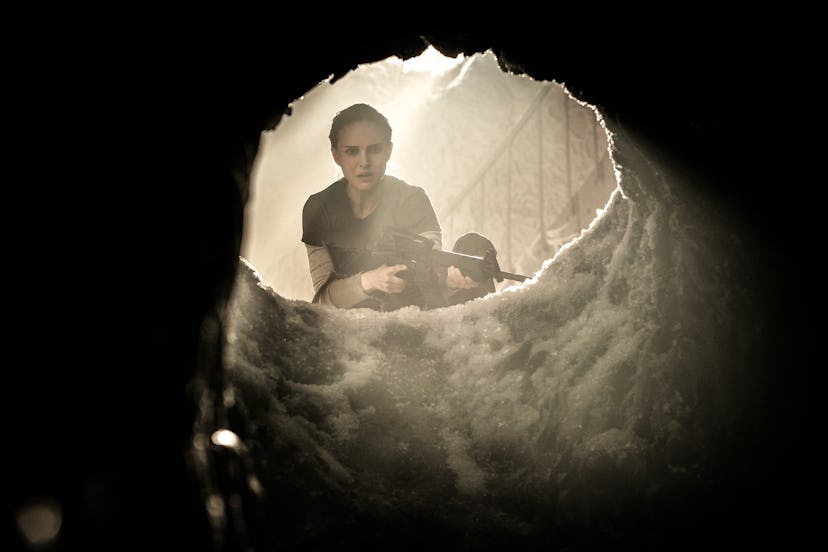The Climax of Annihilation Is Actually a Natalie Portman Dance Performance

With his first sci-fi movie Ex Machina and in his latest Annihilation, starring Natalie Portman, the writer-turned-director Alex Garland has achieved peak wordlessness. There’s plenty of scientific exposition and techno-babble in both high-concept films, of course, but Garland really does mood better than anything else—a low-key dread that builds and builds until it’s punctured by a shock of violence.
And, it would appear, by the device of dance. [Spoilers ahead, obviously.] But where Oscar Isaac tearing up the f—in’ dance floor in Ex Machina went viral because of the meme-ready disco vibes and delightfully twinned choreography with the A.I. fembot Kyoko (played by the model and dancer Sonoya Mizuno), the dancing in Annihilation is way weirder. The sequence arrives at the climax of Portman’s journey into the Shimmer, an undulating, atmospheric force field caused by a meteor strike in the American south which has, we learn at the outset of the film, stolen some bodily or spiritual part of Portman’s husband (Isaac), who went into the Shimmer and returned completely dilapidated.
In Portman’s quest to find answers as to what ails her husband, she encounters an alternate country where everything—plants, animals, humans—is refracted and recombined. In other words, everything can be broken down to its genetic parts and mashed up into something new—or, apparently, copied and cloned, as she finds out when she reaches the core of the Shimmer’s strange powers. There, she encounters her own double, who is first born as a faceless, humanoid form in a latex bodysuit. The actress inside the bodysuit is actually Mizuno, who once again perfectly mirrors her costar’s movements as they begin to struggle with and fight against one another in a fluid choreography. The double appears to be learning to move like Portman by mimicking her, and Mizuno’s evocation of this coming-to-consciousness is basically the story of singularity told as interpretative dance. Choreographed by the Israeli dancer Bobbi Jene Smith (and not, as I at first assumed, by Portman’s husband Benjamin Millepied), it’s beautiful and strange and, as with the best parts of Garland’s movies, says a lot while remaining completely wordless.